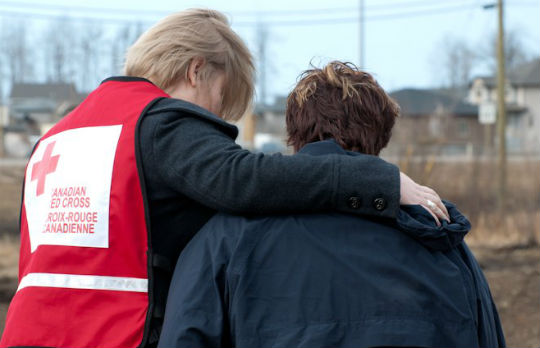
Disasters and emergencies impact us not only physically, but also emotionally.
They cause significant disruption and add stress to our lives. The increased stress we experience during disasters and emergencies can disrupt our routines.
However, people are also resilient in the face of disasters and emergencies. After an emergency, more than 80 per cent of people affected will recover well without prolonged distress and without the event significantly impacting on their mental health.
Preparing for the emotional and social impacts of disasters and emergencies
Anticipate: How do you think you will react to stress?
Identify: How will you think and feel?
Manage: How will you come when you have increased stress?
Make a plan:
It can be helpful to create a self-care plan in advance of a disaster or emergency. Anticipating, monitoring and understanding your own and your loved ones’ reactions will really help during an emergency.
You can ask yourself some of the following questions and write the answers down:
- How do you recognize when you are stressed?
- How do you act and what do you feel?
- What are the personal things in your life or actions you take to feel better? This could include physical, emotional, relationships, spiritual and cultural supports.
- How do you cope with stress?
- What are three things you can do to decompress after a stressful experience?
Get connected:
Our connections with others is critical to increasing resilience and recovery after disasters. Think about:
- Who in your network, friends and family, can you turn to when you experience increased stress? Be specific, and let these people know that they are your support people in the event of disasters/emergencies. Include out of town contacts in your list.
- Who do you consider to be in your community? Who do you already know? Who are your neighbours? Introduce yourself. Start a conversation about how an emergency might affect your local community.
Get to know services in your area:
What services do you and your loved ones access in your local community to increase wellbeing and decrease stress? This could be recreational activities, as well as formal services like counselling. Think about how you will continue these activities in a disaster or emergency. Find local resources
Get organized:
Being organized helps us have a sense of control after an emergency.
- How will you connect with your family members including your children after disasters or emergencies?
- Are you or your loved ones actively managing any physical or mental health conditions?
- List medications or medical assistance of any kind you currently rely on in your self-care plan and include in your kit.
- What are the things in your life that cannot be replaced, and that have great meaning for you or your loved ones? Think about ways you can protect these things in an emergency. Some people find it comforting during an evacuation to bring something that reminds them of their home/community.
- How will you manage and care for your pets in a disaster/emergency? Pets may be a significant part of our lives, and provide comfort and support.
Coping with Crisis
Immediately after an emergency or disaster, a person may experience a range of thoughts, feelings and behaviour that can be intense, confusing and frightening. These are expected reactions to an extraordinary situation.
Learn more about Coping with Crisis
Every year millions of people suffer as a result of human-caused incidents or natural disasters. Any significant loss, human or material, results in a natural grieving process.